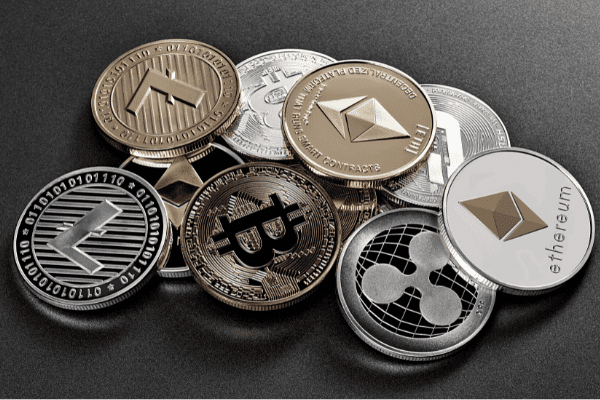Cryptocurrencies such as Bitcoin and its countless derivatives have been steadily on the rise for years and we have come to a point where they simply cannot be ignored in our society. Cryptos are here to stay.
However, in most EU member states, legislation has not followed on this development at all in recent years, as a result of which cryptocurrencies are now subject to a very unclear legal framework in most European countries.
Legal uncertainty is always a brake on innovation, as the European Commission knows very well and that is why the EC has been working hard behind the scenes to prepare a draft regulation that should ensure unified legislation on cryptocurrencies throughout the EU. The proposal aims to better protect consumers and investors from the risks associated with digital financial operations.
For the time being it is only a draft text, but at Sirius Legal we would not be the innovation leaders we are if we did not want to give you an upfront insight into these rules, which will probably be finalized in legal texts in 1,5 to 2 years time.
MiCA
MiCA is the name of the draft regulation, or Regulation of Markets in Cryptoassets. The draft regulation should create a clear legal framework for cryptoassets and more broadly for Distributed Ledger Technology. It wants to support innovation while also creating a secure and trustworthy framework for cryptocurrencies, with the same level of protection as for traditional financial products. The basic principles are investor protection, market integrity and financial stability.
Because MiCA wants to create the same safe framework as the one we already know from classic financial services, it should come as no surprise that many of the principles that MiCA imposes on issuers and service providers of crypto assets will sound familiar to lawyers from the banking world. Well-known from financial law is, for example, the prohibition of insider trading and market manipulation.
MiCA is primarily creating a new licensing system for crypto asset issuers and service providers at a European level. MiCA also provides substantive rules of conduct and many aspects of consumer protection. MiCA is also introducing a new EU-wide passport for operators licensed under the MiCA regime in their own Member State.
Who will MiCA apply to?
MiCA applies to companies involved in the actual issuance of cryptoassets (Initial Coin Offerings or ICOs) or providing other services related to cryptoassets in the EU, such as merchants and intermediaries.
The regulation distinguishes between three categories of issuers:
- Issuers of “asset referenced tokens”: These are cryptoassets that maintain a stable value by referring to the value of different fiat currencies that are legal tender, one or more assets or other cryptoassets, or to a combination of such assets. Anyone who wants to issue such tokens will need a license issued by their own national government. In order to obtain this license, the issuer in question will have to comply with a whole list of conditions, including, for example, the obligation to maintain sufficient coverage and the obligation to issue a prospectus.
- Issuers of “e-money tokens”: These are cryptoassets that can be used as a medium of exchange and are intended to maintain a stable value by referring to the value of a fiat currency that is itself legal tender. Issuers of e-money tokens must also be authorized by the regulator of their home state as a credit institution or as an issuer of e-money and as such will be subject to the requirements of the EMD II Directive (Eletronic Money Directive II). There are a number of rules to follow here. Issuers must provide a prospectus, Issuers of e-money tokens must ensure that holders of e-money tokens have recourse to the issuer, that such tokens are issued at face value upon receipt of funds, and that the terms and conditions for redemption are clearly stated. Electronic money token issuers are prohibited from paying interest on the tokens.
- Issuers of Other Tokens: Issuers of these types of cryptoassets (e.g. Utility tokens) do not require a license to offer their cryptoassets to the public or to access a crypto exchange and, provided they meet the requirements of MiCA, they are allowed to do this throughout the EU. Issuers do have to comply with a whole series of conditions, such as issuing a prospectus and strict advertising rules. In addition, issuers will have to be able to justify in advance why their cryptoasset is not a financial instrument or structured deposit under the MiFID II Directive, electronic money under the EMD II Directive or a deposit under the EU Directive on Deposit Guarantee Schemes.
Note that while there is a prospectus requirement, there is no need to obtain prior approval of the content of the prospectus or marketing communication. National regulators can suspend or ban a supply of cryptoassets in the event of violations of MiCA by the issuer.
Providers of other services must also obtain a license in most cases. There are eight types of such services and the listing is very similar to existing investment services and activities under MiFID II:
- crypto Assetand Management on behalf of Third Parties
- operating a Cryptoasset Trading Platform (In other words, Crypto exchanges )
- the exchange of assets for legal tender fiat currency
- exchange offices for cryptoassets
- executing orders for cryptoassets on behalf of third parties
- placing cryptoassets
- receiving and transmitting orders for cryptoassets on behalf of third parties Providing
- advice on cryptoassets
Existing credit and insurance companies
Existing banks and credit companies do not need obtained new license for offering cryptoasset services. This also applies to investment firms under MiFID, provided that the relevant cryptoasset service is linked to the relevant MiFID investment service or activity for which they are licensed.
Insurers and reinsurers under the Solvency II Directive are also outside the scope of MiCA for activities that fall under Solvency II.
Exemptions for public offering
The public offering of cryptoassets can be exempt from licensing obligations if a series of conditions are met:
- the cryptoassets must be offered for free.
- the cryptoassets are automatically created through mining as a reward for the maintenance or validation of transactions on a or comparable technology
- the cryptoasset is unique and cannot be exchanged with other cryptoassets.The
- offer is limited to a maximum of 150 natural or legal persons per member state, who all trade for their own account.The
- total value is maximum € 1,000,000 (or the equivalent in another currency or in cryptoassets) over a 12-month period
- the offering of cryptoassets is exclusively addressed to qualified investors and the cryptoassets can only be held by these qualified investors.
For asset referenced tokens or e-money tokens, the MiCA licensing requirement will not apply if:
- the asset referenced tokens / e-money tokens are exclusively sold and distributed to qualified investors and can only be held by qualified investors.
- the average outstanding amount of tokens does not exceed € 5,000,000 (or the corresponding equivalent in another currency) over a 12-month period.
Note that in case of such an exemption, the prospectus requirement still exists.
What about existing services and providers?
Cryptoasset service providers have 18 months from the date MiCA comes into effect to obtain a license. Until authorized, however, crypto asset service providers will have to continue to comply with existing national laws of member states.
Existing cryptoassets that are not asset-referenced tokens or e-money tokens that were offered in the EU prior to the date of MiCA entry into force will benefit from a “grandfathering” provision and will not be subject to the MiCA requirements.
What are the next steps?
As we stated in the introduction, this is just a first drfat of regulation. The legislative process within the EU will continue before this becomes a definitive regulation, which can take up to two more years.
There is, however, no doubt that the scheme will eventually come about. For those who are active in the crypto currency world, it is time to prepare for what is to come.
Questions about crypto currencies, DLT or blockchain?
Our team is happy to make time for a no-obligation introductory meeting. Feel free to book a moment here in our agenda.
You can of course also call or email +32 486 901 931 or bart@siriuslegal.be

